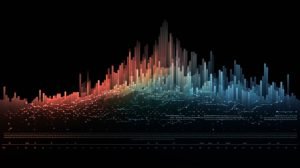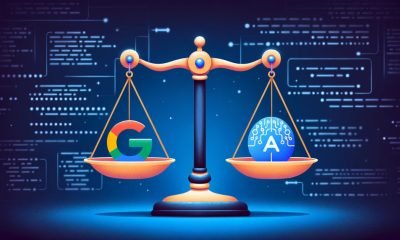Artificial Intelligence
Exploring Claude 2: Anthropic’s Ambitious Step Towards Next-Gen AI

In the ever-evolving world of artificial intelligence, Anthropic, a start-up co-created by ex-OpenAI leaders, has taken another step towards industry dominance. They recently announced the debut of their AI chatbot, Claude 2, marking a significant milestone in the firm's journey to establish itself alongside AI titans like OpenAI and Google.
The birth of Anthropic in 2021 served as a precursor for the current rapid advancements in AI chatbots. Their latest progeny, Claude 2, is a testament to their dedicated focus on the evolution of this technology. It's a successor to Claude 1.3, Anthropic's initial commercial model, and was launched in beta in the U.S. and U.K. The pricing remains untouched, still around $0.0465 for 1,000 words, and has attracted various businesses like Jasper and Sourcegraph to start piloting Claude 2.
Anthropic is the brainchild of former OpenAI research executives and has enjoyed the backing of significant corporations like Google, Salesforce, and Zoom. A host of businesses like Slack, Notion, and Quora have become testing grounds for its AI models over the past two months. The start-up has successfully garnered interest from over 350,000 individuals, eagerly waiting to gain access to Claude's application programming interface and its consumer offering.
Anthropic's co-founders, Daniela and Dario Amodei, have stressed the importance of robust safety in Claude's development. According to them, Claude 2 is the safest iteration yet, and they are thrilled about its potential impact on both the business and consumer world. Currently limited to users in the U.S. and U.K., Claude 2's availability is set to expand in the near future.
Claude 2 – AI Evolution in Practice
Much like its predecessor, Claude 2 demonstrates an impressive ability to search across documents, summarize, write, code, and answer topic-specific questions. However, Anthropic asserts that Claude 2 surpasses its predecessor in several key areas. For example, Claude 2 outperforms Claude 1.3 on the multiple-choice section of the bar exam and the U.S. Medical Licensing Exam. Its programming ability has also improved, demonstrated by its superior score on the Codex Human Level Python coding test.
Claude 2 exhibits improved capability in mathematics, scoring higher on the GSM8K collection of grade-school-level problems. Anthropic has focused on enhancing Claude 2's reasoning and self-awareness, making it more competent at processing multi-step instructions and recognizing its limitations.
The introduction of more recent data for Claude 2's training, including a mix of web content, licensed datasets from third parties, and voluntarily-supplied user data, has likely contributed to these performance enhancements. Despite the vast improvements, the underlying architecture of Claude 1.3 and Claude 2 remains similar. The latter is viewed as a refined version of its predecessor, rather than a completely new invention.
A notable attribute of Claude 2 is its large context window of 100,000 tokens, matching Claude 1.3's capacity. This enables Claude 2 to generate and ingest a significantly larger volume of text, allowing it to analyze approximately 75,000 words and produce around 3,125 words.
However, Claude 2 is not without its limitations. It still grapples with the problem of hallucination, where responses can be irrelevant, nonsensical, or factually incorrect. It can also generate toxic text, which reflects biases in its training data. Despite these limitations, Claude 2 is said to be twice as likely to give harmless responses compared to Claude 1.3, based on an internal evaluation.
Anthropic suggests refraining from using Claude 2 in scenarios involving physical or mental health and well-being or high-stakes situations where a wrong answer could cause harm. Nevertheless, they are hopeful about the chatbot's potential and are committed to further improving its performance and safety.

Implications and Future Prospects
The introduction of Claude 2 signifies more than just the birth of a new AI chatbot. It stands as an emblem of Anthropic's ambitious pursuit of a self-teaching AI algorithm. This ambition, if realized, could ignite a revolution in various sectors, from virtual assistance to content generation, posing significant implications for the AI industry.
The AI industry is closely observing Anthropic's progress, with competitors such as OpenAI, Cohere, and AI21 Labs all developing their AI systems. Claude 2's introduction underscores a larger industry trend towards more sophisticated and user-friendly AI models. It is poised to drive a new wave of innovation and improvements in AI technology as it competes with other AI chatbots in the market.
A New Era of AI: Charting the Course of Future Innovations
The introduction of Claude 2 by Anthropic is a defining moment that is not just significant to the company, but is emblematic of a broader shift within the field of AI. This new model ushers in a fresh era of AI advancement, where the line between human and artificial intelligence continues to blur. Claude 2’s improved capabilities exemplify significant strides taken in AI technology, offering a peek into the future of how artificial and human interactions might evolve.
The launch of Claude 2 also sheds light on the growing complexity of ethical issues related to AI. As AI models become more sophisticated, ethical considerations around their development and usage become increasingly critical. These range from privacy concerns and data security to the biases embedded in AI and how it might influence our society. It is now more vital than ever for AI developers to work alongside ethicists, policymakers, and society at large to ensure these considerations are thoroughly addressed.
In the competitive landscape of AI chatbots, Claude 2, along with its counterparts, is likely to be a significant catalyst for innovation and technological progress. The competition between AI chatbots could be likened to an intellectual arms race, pushing the boundaries of AI and leading to the development of more sophisticated, user-friendly, and reliable models. This competition is not just about who has the most advanced AI, but who can utilize it effectively and responsibly in real-world applications.
The development of Claude 2 and other similar models promises to have wide-ranging implications for a multitude of sectors. This goes beyond the realm of virtual assistance and content generation, extending to industries such as education, healthcare, and even entertainment. These AI chatbots could potentially revolutionize the way we learn, communicate, and interact with technology, paving the way for a new phase of digital evolution.
Looking at Anthropic's strategy for Claude 2 and their larger objective of creating a “next-gen algorithm for AI self-teaching” offers a glimpse into the company’s ambitious vision. The successful achievement of these goals could indeed instigate a seismic shift in the AI industry, bringing us closer to a future where AI is a seamless part of our daily lives.
However, such grand ambitions don't come without their fair share of challenges. From technical hurdles and data privacy issues to societal acceptance and regulatory landscapes, there are multiple factors that could impact the realization of these plans. It will indeed be intriguing to follow Anthropic’s journey, to see how they maneuver around these challenges, and how their vision shapes the future of Claude 2 and the broader AI industry.
The unveiling of Claude 2 is more than just another product launch; it represents the promise of what AI can achieve, the responsibility that comes with such advancements, and the start of an exciting new chapter in the story of AI. As we stand on the precipice of this new era, it's an opportune time to not only celebrate the technological marvel that AI represents but also to engage in a thoughtful conversation about its implications for our society.














